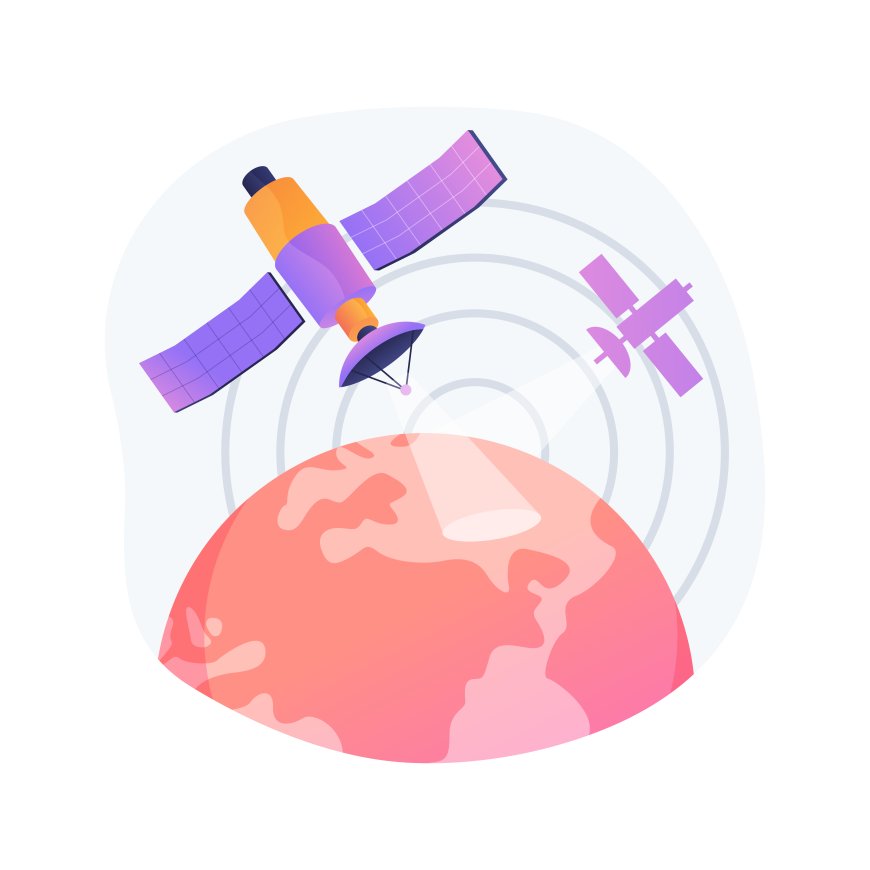Best Satellite Internet Providers: A Comprehensive Guide
Discover everything you need to know about the best satellite internet providers in this comprehensive guide. Learn about speeds, data limits, pricing, and what to look for in satellite internet services.

In today's world, having reliable internet access is more important than ever. Whether you're working remotely, streaming your favorite shows, or staying connected with friends and family, a stable internet connection is essential. For those living in rural or remote areas, satellite internet can be a lifeline, providing high-speed connectivity where other types of internet services, like cable or fiber, may not be available.
While satellite internet has evolved greatly over the years, it can be confusing to know where to start when searching for the best satellite internet providers. In this article, we’ll dive into everything you need to know about satellite internet, from how it works to what features you should look for in a provider.
What is Satellite Internet?
Satellite internet is a type of high-speed internet that delivers service through satellites orbiting the Earth. Unlike traditional wired internet services, satellite internet beams data from a satellite in space directly to a dish installed on your property. From there, the dish communicates with your modem, allowing you to connect to the internet.
This method of delivering the internet is particularly beneficial for people living in rural or remote areas where other types of internet infrastructure, such as fiber optics or cable lines, are not available. Satellite internet provides a much-needed connection to the world, making it possible for those in less populated areas to enjoy the benefits of high-speed internet.
How Does Satellite Internet Work?
Satellite internet operates by transmitting signals from a ground station up to a satellite orbiting the Earth. The satellite then sends the signal down to a dish located on your property. This process happens within milliseconds, providing a relatively fast internet connection compared to dial-up services. However, since the signal must travel a significant distance, satellite internet typically experiences higher latency than wired connections like fiber or cable.
Despite this delay, satellite internet has greatly improved in recent years. Modern advancements have made it faster and more reliable, allowing users to stream movies, video chat, and perform other data-heavy tasks more efficiently than before.
Advantages of Satellite Internet
There are several reasons why satellite internet is a great option, particularly for those in rural or remote areas. Let’s explore some of the key benefits.
1. Availability in Remote Areas
One of the biggest advantages of satellite internet is its availability. Since the service is provided by satellites in space, it can reach almost any location on Earth. Whether you're in a small town, on a farm, or in a remote mountain area, satellite internet can deliver high-speed service where other types of connections might not be available.
2. Easy Installation
Unlike cable or fiber connections, which require extensive infrastructure to be installed, satellite internet only requires a dish and modem. This makes installation relatively quick and easy. Most providers will either send a technician to install the dish for you or provide step-by-step instructions for a DIY setup.
3. High-Speed Internet
While satellite internet used to be known for slower speeds, today’s satellite technology offers much faster connections. Depending on the provider and plan you choose, you can expect download speeds ranging from 25 Mbps to over 100 Mbps, which is more than enough for most household activities like streaming, gaming, and browsing the web.
4. Ideal for Remote Work and Learning
In the wake of the COVID-19 pandemic, remote work and online learning have become the new norm for many. Satellite internet provides a reliable solution for those who need to stay connected while living in rural or remote areas. Whether you're attending virtual meetings, completing online courses, or running a small business from home, satellite internet can give you the bandwidth you need to stay productive.
Challenges of Satellite Internet
While satellite internet has many advantages, it’s also important to be aware of its potential downsides. Understanding these challenges can help you make an informed decision when choosing the best satellite internet provider.
1. Latency
As mentioned earlier, one of the main drawbacks of satellite internet is latency. Latency refers to the time it takes for data to travel between your device and the server. Because satellite signals have to travel long distances, satellite internet typically experiences higher latency than wired connections. This can lead to delays in certain activities like online gaming or video conferencing.
2. Data Caps
Many satellite internet providers impose data caps on their plans. A data cap is the maximum amount of data you can use in a given billing cycle. If you exceed this limit, your speeds may be slowed, or you may incur additional charges. Some providers offer unlimited data plans, but these are usually more expensive.
3. Weather Interference
Satellite internet can also be affected by weather conditions. Heavy rain, snow, or storms can disrupt the signal, leading to temporary interruptions in service. While this issue has improved with modern technology, it’s still something to consider, especially if you live in an area prone to extreme weather.
What to Look for in the Best Satellite Internet Providers
When choosing a satellite internet provider, several factors should guide your decision. Let’s explore some of the key features you should consider before signing up for a service.
1. Speed
Speed is one of the most important factors to consider when choosing the best satellite internet provider. While satellite internet speeds have improved dramatically in recent years, they can still vary depending on the provider and plan you choose. Look for providers that offer high download speeds (at least 25 Mbps) and consider your internet usage habits to determine if you need a higher-speed plan.
2. Data Allowance
As mentioned earlier, many satellite internet providers have data caps. When choosing a plan, make sure to understand how much data you’re allowed each month and whether there are penalties for exceeding your limit. If you’re a heavy internet user who streams a lot of video content, works from home, or has a large family, you may want to look for a provider that offers higher data limits or unlimited data plans.
3. Cost
Cost is another critical factor. Satellite internet plans can be more expensive than other types of internet services, especially if you’re looking for high speeds and unlimited data. Be sure to compare prices between providers and check for any additional fees, such as installation costs, equipment rental fees, or early termination penalties.
4. Reliability
Reliability is key when it comes to satellite internet. Look for providers that have a strong reputation for consistent service. While weather interference can affect satellite internet, the best satellite internet providers will have technologies in place to minimize these disruptions and keep you connected as much as possible.
5. Customer Support
Good customer support is essential for any internet provider. If you encounter technical issues or need help with your service, it’s important to know that you can rely on your provider’s support team. Look for providers with a reputation for responsive and helpful customer service, as this can make a big difference in your overall experience.
Future of Satellite Internet
The future of satellite internet looks promising. With advancements in satellite technology, we can expect faster speeds, lower latency, and more affordable pricing in the coming years. In fact, several companies are working on launching new satellite constellations that aim to revolutionize the satellite internet industry.
These new satellites are designed to be closer to the Earth than traditional satellites, which could significantly reduce latency and provide even faster speeds. This development could make satellite internet a viable option not just for rural areas but for people in cities and suburban areas as well.
Conclusion
Choosing the best satellite internet providers requires careful consideration of your needs and the available options. Whether you live in a rural area with limited connectivity options or simply want to explore alternative internet services, satellite internet offers a reliable and increasingly fast solution. Keep in mind the key factors we’ve discussed, such as speed, data allowances, cost, and reliability, as you search for the best satellite internet provider to meet your needs.
What's Your Reaction?
 Like
0
Like
0
 Dislike
0
Dislike
0
 Love
0
Love
0
 Funny
0
Funny
0
 Angry
0
Angry
0
 Sad
0
Sad
0
 Wow
0
Wow
0



















































